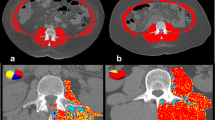Abstract
Muscle depletion is frequently encountered in cirrhotic patients. As muscle may represents an alternative site of ammonia detoxification in liver diseases, our study was aimed at investigating whether a decrease in muscle mass or function may independently influence the prevalence of neurocognitive alterations in cirrhosis. Three-hundred consecutive hospitalized cirrhotic patients were prospectively enrolled. Liver function, a complete neurocognitive assessment for the diagnosis of clinical or subclinical hepatic encephalopathy (HE) and parameters of nutritional status and muscle function were evaluated in each patient at admission. Clinically overt HE, at admission or in the last 12 months, or a diagnosis of minimal HE were significantly higher in cirrhotic patients with muscle depletion or decreased muscle strength. The fasting venous blood ammonia concentrations were also higher in this group. Muscle depletion was an independent risk factor at multivariate analysis both for overt and minimal HE. In conclusion cirrhotic patients with muscle depletion are at higher risk of HE and the amelioration of nutritional status is a possible goal to decrease the prevalence of neurocognitive alterations in these patients.

Similar content being viewed by others
References
Amodio P, Campagna F, Olianas S, Iannizzi P, Mapelli D, Penzo M et al (2008) Detection of minimal hepatic encephalopathy: normalization and optimization of the Psychometric Hepatic Encephalopathy Score. A neuropsychological and quantified EEG study. J Hepatol 49:346–353
Huisman EJ, Trip EJ, Siersema PD, van Hoek B, van Erpecum KJ (2011) Protein energy malnutrition predicts complications in liver cirrhosis. Eur J Gastroenterol Hepatol 23:982–989
Kalaitzakis E, Olsson R, Henfridsson P, Hugosson I, Bengtsson M, Jalan R, Bjornsson E (2007) Malnutrition and diabetes mellitus are related to hepatic encephalopathy in patients with liver cirrhosis. Liver Int 27:1194–1201
Luna-Heredia E, Martin-Pena G, Ruiz-Galiana J (2005) Handgrip dynamometry in healthy adults. Clin Nutr 24:250–258
Merli M, Riggio O (2009) Dietary and nutritional indications in Hepatic encephalopathy. Metab Brain Dis 24(1):211–221
Merli M, Riggio O, Dally L (1996) Does malnutrition affect survival in cirrhosis? Hepatology 23:1041–1046
Merli M, Giusto M, Gentili F, Novelli G, Ferretti G, Riggio O, Corradini SG et al (2010) Nutritional status: its influence on the outcome of patients undergoing liver transplantation. Liver Int 30:208–214
Montano-Loza AJ, Meza-Junco J, Prado CM, Lieffers JR, Baracos VE, Bain VG, Sawyer MB (2012) Muscle wasting is associated with mortality in patients with cirrhosis. Clin Gastroenterol Hepatol 10:166–173
Olde Damink SWM, Jalan R, Redhead DN, Hayes PC, Deutz NE, Soeters PB (2002) Inter organ ammonia and amino acid metabolism in metabolically stable patients with cirrhosis and a TIPSS. Hepatology 37:1163–1170
Periyalwar P, Dasarathy S (2012) Malnutrition in cirrhosis: contribution and consequences of sarcopenia on metabolic and clinical responses. Clin Liver Dis 16:95–131
Sörös P, Böttcher J, Weissenborn K, Bengtsson M, Jalan R, Björnsson E (2008) Malnutrition and hypermetabolism are not risk factors for the presence of hepatic encephalopathy: a cross-sectional study. J Gastroenterol Hepatol 23:606–610
Weissenborn K, Ennen JC, Schomerus H, Rückert N, Hecker H et al (2001) Neuropsychological characterization of hepatic encephalopathy. J Hepatol 34:768–773
Wright G, Noiret L, Olde Damink SW, Jalan R (2011) Interorgan ammonia metabolism in liver failure: basis of current and future therapies. Liver Int 31:163–175
Disclosure
The authors have nothing to disclose No conflict of interest exist
Author information
Authors and Affiliations
Corresponding author
Rights and permissions
About this article
Cite this article
Merli, M., Giusto, M., Lucidi, C. et al. Muscle depletion increases the risk of overt and minimal hepatic encephalopathy: results of a prospective study. Metab Brain Dis 28, 281–284 (2013). https://doi.org/10.1007/s11011-012-9365-z
Received:
Accepted:
Published:
Issue Date:
DOI: https://doi.org/10.1007/s11011-012-9365-z




